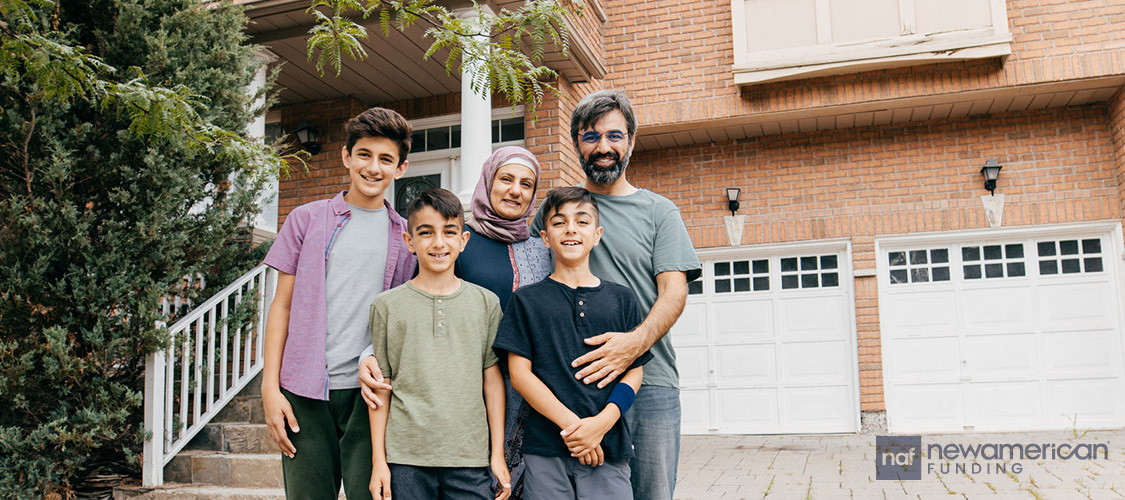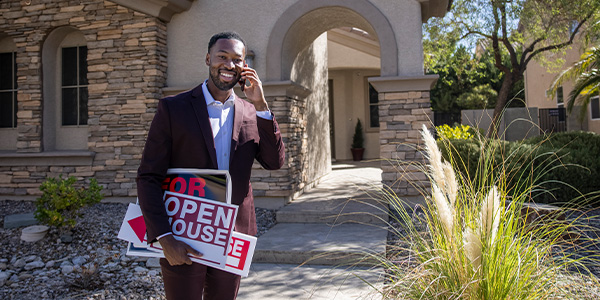Homebuyers
Multifamily Housing: Buy a Home and Have Someone Else Help Pay Your Mortgage
August 27, 2024
In 2011, Daniel Cabrera bought his first multifamily home in San Antonio, Texas. It was a duplex. He lived in one unit and rented out the other to help cover his mortgage.
That extra income helped him to buy additional real estate. Today, he has flipped more than 200 properties.
"My goal was to build wealth through real estate investment," said Cabrera, now 39. He owns Sell My House Fast, a company that makes cash offers on homes. "The rental income covers the costs and allows me to gain equity."
Cabrera used a strategy called "house hacking" to maximize the value of his property. This is when homeowners turn unused space or entire housing units into income-generating assets.
Whether it's renting out an extra room, a basement apartment, an accessory dwelling unit, or leveraging the potential of a multifamily building, homeowners may be able to significantly reduce their mortgage, utilities, and other expenses. They're also building equity in their real estate.
Multifamily properties with two or more units may also provide tax benefits, including deductions for mortgage interest, property taxes, and depreciation.
Since 2020, the number of multifamily homes in top U.S. markets has grown by an average of 3.4% each year, according to a recent report from global commercial real estate firm Avison Young. About 500,000 new multifamily units are expected to come online in 2024.
"I highly recommend it for long-term wealth building," said Cabrera.
How to purchase a multifamily home

Purchasing a multi-family property often requires careful planning, particularly when it comes to the down payment. The amount can vary significantly based on the type of financing and whether the property will be owner-occupied or used purely as an investment.
For those planning to house hack and live in one of the units, Conventional loans under Freddie Mac typically require a 15% down payment for two units and 20% for three to four units. Fannie Mae offers a more flexible option with a minimum down payment of just 5% for two to four units.
Meanwhile, Federal Housing Administration (FHA) loans are another accessible option, requiring as little as 3.5% down.
However for those purchasing a multifamily home only as an investment, a larger down payment of around 25% is usually required with a Conventional loan.
That's because many lenders view the purchase as riskier than if the borrower was planning to live there. The down payment for an investment purchase also must come from the buyer's fund, instead of grants or a gift from a family member.
Investment properties cannot be purchased with VA or FHA loans.
Some lenders may also require a homebuyer education course.
"Managing multiple homes is more challenging than buying a single-family home and the course can help you better understand those responsibilities," said Teresa White, a Loan Officer with New American Funding in Canyon Lake, Texas.
The financial perks of buying a multifamily home
There are financial benefits to purchasing a multifamily property as well. If any units are already rented out, 75% of that rental income can be used to help improve their debt-to-income ratio. That may help buyers qualify for the loan.
If the units are empty, a surveyor can estimate how much rental income they could generate. Then 75% of that number may be eligible to count toward the buyer's income.
Another perk of buying a multifamily property that the borrower plans to live in is that the entire down payment can be a gift from a close relative.
This is especially helpful for families who want to stay close together and pool resources for one member to buy the property.
The risks of purchasing a multifamily home

Investing in multifamily properties comes with its share of risks.
"Buyers may not be savvy or have sufficient experience to handle being a landlord and being able to handle vacancies and deal with repairs," said White. "They need to have a very good budget and make sure that they have sufficient reserves to handle these situations."
Tenants may move out and a unit may remain vacant for longer than the owner would prefer. Maintenance and repairs can add up. There may be tenant disputes. All of this can impact profits.
"There have been occasions when I've encountered urgent repairs or tenant conflicts," said Cabrera. However, that hasn't dissuaded him. "Overall, buying multifamily homes has been hugely rewarding financially and professionally."






 Smart Moves Start Here.
Smart Moves Start Here.